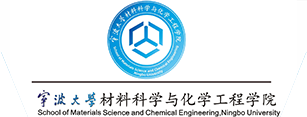Time: Thursday, June 13, 2024, 10:00 am
Location: Yangming College Dual Innovation Laboratory (IV)
Lecturer: Gao Yiqin
Brief introduction of the lecturer:
Yiqin Gao, born in 1972, graduated from the Department of Chemistry, Sichuan University in 1993, received his M.S. degree from the Institute of Chemistry, Chinese Academy of Sciences (CAS) in 1996, and Ph.D. degree from the California Institute of Technology (Caltech) in 2001, and did his post-doctoral research at Caltech and Harvard University in 2001-2004, and then studied at the Texas A&M University (TAMU) in the U.S. in 2004-2010. From 2004 to 2010, he worked as an assistant professor in the Department of Chemistry at Texas A&M University. Since 2010, he has been a professor in the School of Chemical and Molecular Engineering at Peking University, and a researcher in the Center for Biomedical Frontier Innovation at Peking University since 2013. He has been a researcher in the Center for Frontier Innovation in Biomedicine at Peking University since 2013. He has been awarded Clauser Prize, Searle Scholar, Pople Medal, 2018 China's Top 10 Scientific and Technological Advances, and Beijing Advanced Scientific Worker. Currently, he is Associate Director of Science Department of Peking University, Associate Editor of JCTC Journal , New Cornerstone Fellow.
Abstract:
The use of computer simulation to study the structure, dynamics and function of complex molecular systems is increasingly widely used. In recent years, the introduction of deep learning models and algorithms has effectively improved the capability of molecular simulation . In this presentation, we will first introduce the basic methods of molecular simulation and the methodological developments brought about by the combination of deep learning algorithms and molecular simulation: in protein structure prediction, we help reduce the computational resource requirements of sequence search by developing sequence generation models, which accelerate the inference process while improving structure prediction capabilities; we enhance and accelerate the resolution of protein and protein complex structures by introducing sparse physical constraints from experiments and helping to obtain the structure of protein complexes, and by introducing sparse physical constraints from experiments, which enhance and accelerate the resolution of protein and protein complex structures. protein complex structures by introducing sparse physical constraints from experiments to enhance and accelerate the resolution of protein and protein complex structures and to help obtain multiple conformations of a single protein; and the combination of deep learning-based binding site search for drug molecules and scoring-based binding capacity assessment can improve the efficiency of predicting the structure of protein/small molecule complexes. Finally, we will present attempts to centralize the implementation of these structure prediction, molecule generation, and kinetic calculations under a unified deep learning framework to build multimodal and cross-scale molecular simulation tools native to AI. We hope that such a unified platform for AI and molecular dynamics simulation can better contribute to the development and rapid realization of molecular computational methods.



